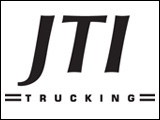Steinbach MLA, Kelvin Goertzen, met with members of the Canada-U.S. Relations Committee Sunday and Monday of this week in Toronto in meetings primarily focused on trade in agriculture, regulatory cooperation and border security and delays.
“While there is pressure towards protectionism during economically difficult times, I was generally pleased that among both Canadian and U.S. legislators there is an understanding that free trade between our two countries serves both our long-term interests,” said Goertzen. “The current economic challenges in both our countries do change the environment however and it is more important than ever to keep advancing the case for cooperation between the U.S. and Canada on trade issues.”
The meeting included elected representatives from Illinois, Indiana, Iowa, Kansas, Michigan, Minnesota, Nebraska, North Dakota, South Dakota, Ohio, Wisconsin, Saskatchewan and Ontario. Representatives from both the Canadian and American agriculture departments were in attendance as well.
Goertzen noted that there is concern from business that there has been some “thickening” of the border as a result of increasing fees, inspections, regulations and wait times at the borders. Many committee members expressed a desire to move on a regional basis toward more harmonization of product standards to help ensure easier trade.
“There is a recognition that Canada and the U.S. don’t just trade with each other, we build things together. Many products cross the border back and forth during the manufacturing stage and delays and disruptions in that process cost money and jobs, often needlessly,” said Goertzen.
There was continued discussion around the issue of mandatory country of origin labelling as it relates to agriculture and other products.
Currently, a World Trade Organization dispute panel has been established to look at the concern over U.S. legislation that requires U.S. processors of certain meat to label country of origin on their retail packaging. Manitoba and Canada believe this is a trade barrier in that it forces U.S. processors to separate animals by country of origin and run separate processing lines which has resulted in many of them simply not accepting Canadian animals. Last year, after the legislation came into effect, Manitoba producers shipped 28% fewer pigs to the U.S. than the year before.
A decision by the WTO panel is expected either later this year or early 2011.



